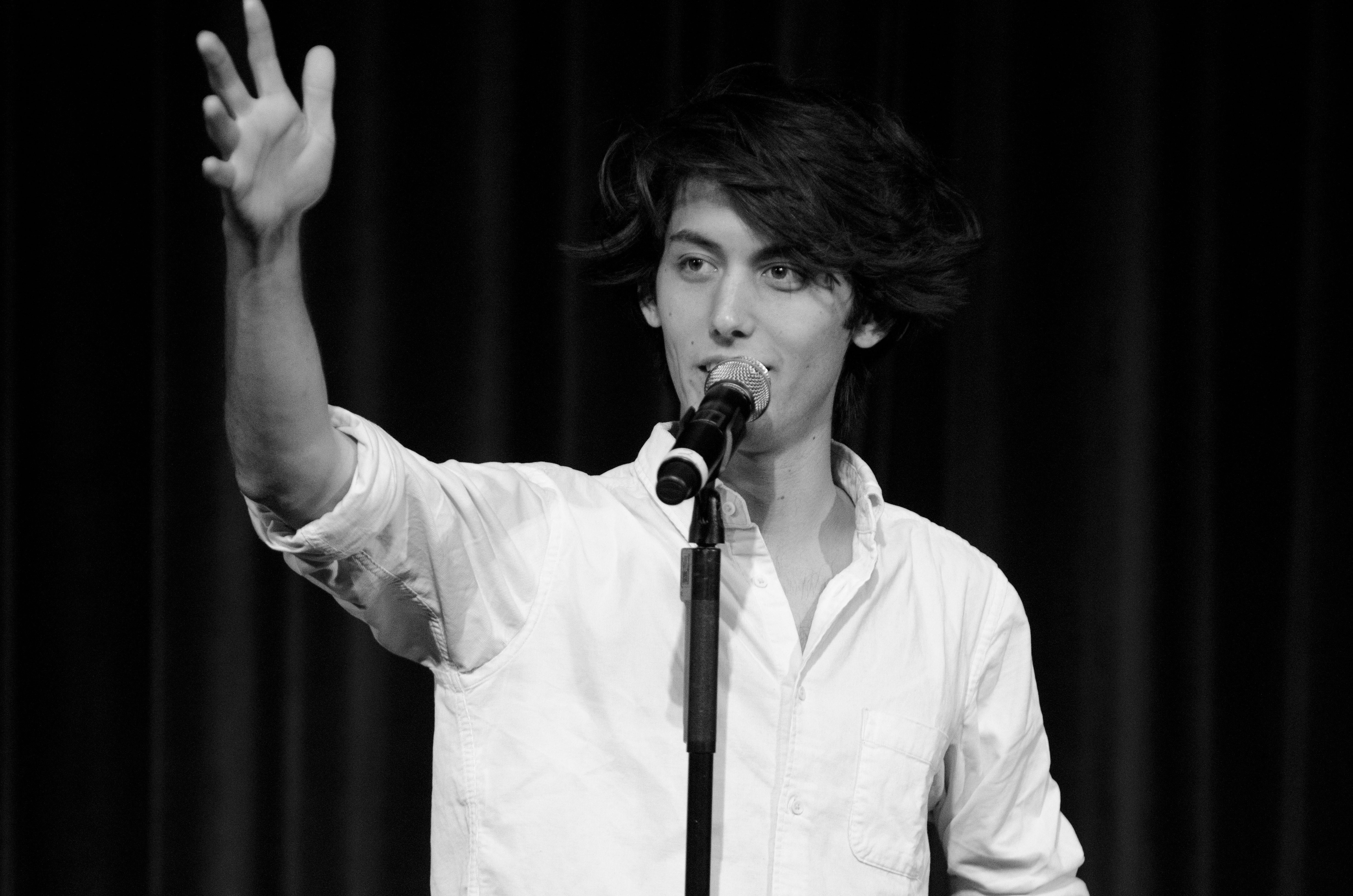|
Phil Kaye is a poet that was born to a Japanese mother and a Jewish-American father. He was raised in a California beach town and discovered his love of spoken word poetry at the age of seventeen. Phil has performed in hundreds of venues in fifteen countries. From stages, bars, colleges, classrooms, prisons, and online; Phil has shared his poetry in all of these spaces. His first collection of poems, A Light Bulb Symphony, was published in 2011. He is best known as being the co-director for Project VOICE. Project V.O.I.C.E. (Vocal Outreach Into Creative Expression) is a national movement that celebrates and inspires youth self-expression through Spoken Word Poetry. This was founded by Phil’s close friend and co-director Sarah Kay. The goal of this organization is to educate and bring spoken word into the classrooms of young adults. Project V.O.I.C.E. also brings together performance, writing, and a supportive environment to inspire youth to recognize that their views are significant, valid, and necessary. Poem 1: "Repetition" by Phil KayeThis poem was performed by Phil during the 2011 National Poetry Slam. The poem begins with Phil stating, “I remember the bed just floating there…apart, apart, apart.” The repetition of the word apart is the first moment in the poem where Phil shows his childhood stutter. Another line that is repeated throughout this poem is “My mother taught me this trick.” It is used to begin each section of the poem that he’s trying to explain that when you repeat a word over and over again it loses it meaning. The auditory song of Phil repeating words and phrases makes the poem move very quickly and you can almost feel the words flying out of his mouth. The poem also tells the story of his parents’ divorce when he was seven and this led to his development of a stutter. He makes a great use of his body movement and body language by using his hands and arms. As he progresses throughout the poem, his voice heightens and he becomes more emotional, this makes it easier for the audience to feel connected to his poetry. Overall, I enjoyed this poem because he is able to talk about abstract themes like love and family, but he also talks about the personal experience of his stutter and his relationship with words. Poem 2: "Teeth"Phil performed this poem at the United Nations School in 2010. This poem has two parallel stories. One is about Phil’s Japanese grandfather and the other is about his Jewish grandfather. The poem jumps throughout time and it was interesting to see that Phil did not choose to tell these two stories following linear time. Phil begins the poem with talking about the home of his Japanese ancestors being burned down in 1945 during World War II. He then juxtaposes this with saying how his other grandfather was fighting for the Allied side against Japan during World War II. Throughout the poem he embodies the two different personas of his grandfathers and this is effective because he is a blend of these two different cultures and men. One of the really cool images in this poem is the mention of Jewish gravestones stacked upon each other so they form hills that look like they have teeth gutting out all over. This is a sad and disturbing image, but Phil uses the metaphor for teeth all throughout the poem to have a concrete image for the audience to hold onto.
1 Comment
|
ENGL4302 Spoken Word Poetry & Pedagogy at LSU ArchivesCategories
All
|

 RSS Feed
RSS Feed